The Nigerian newspaper review for Wednesday, January 22, leads with news that the National Judicial Council (NJC) gave suspended Chief Justice of Nigeria (CJN), Justice Walter Onnoghen, and the acting CJN, Justice Ibrahim Muhammad, seven days to respond to petitions written against them among other top stories.
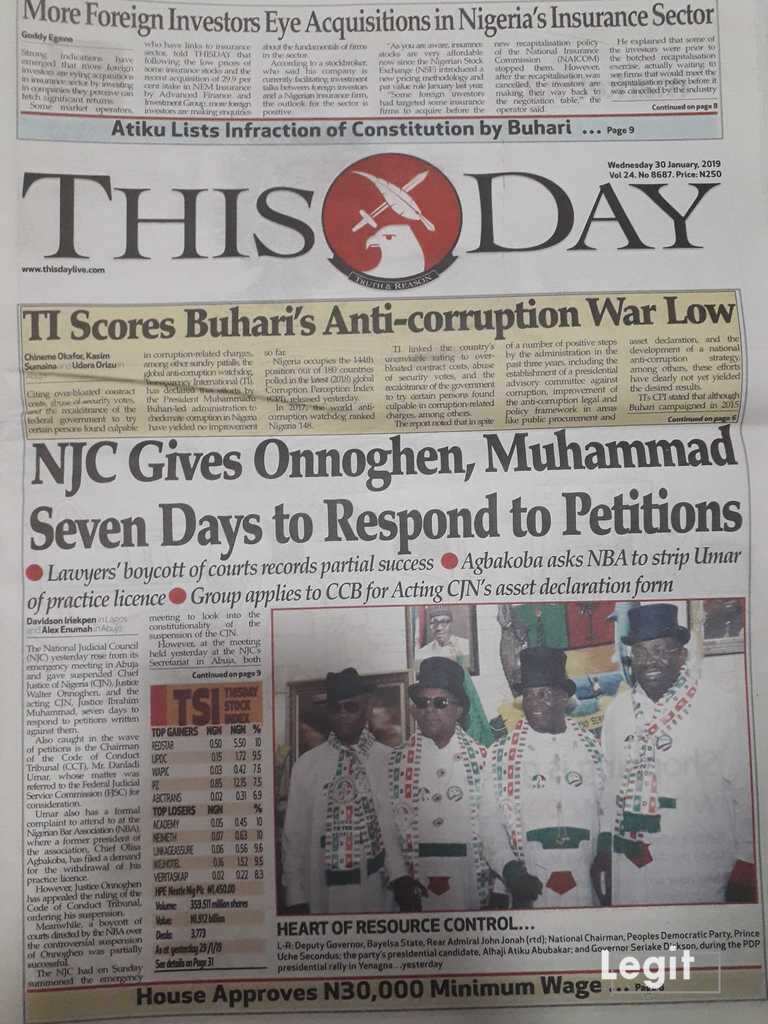
Nigerian Newspaper This Day for Wednesday, January 30
Source: Original
Nigerian newspaper This Day reports that the National Judicial Council (NJC) gave suspended Chief Justice of Nigeria (CJN), Justice Walter Onnoghen, and the acting CJN, Justice Ibrahim Muhammad, seven days to respond to petitions written against them.
READ ALSO: After drama at APC rally in Imo, Okorocha’s son-in-law congratulates Buhari
Also caught in the wave of petitions is the chairman of the Code of Conduct Tribunal (CCT), Mr. Danladi Umar, whose matter was referred to the Federal Judicial Service Commission (FJSC) for consideration.
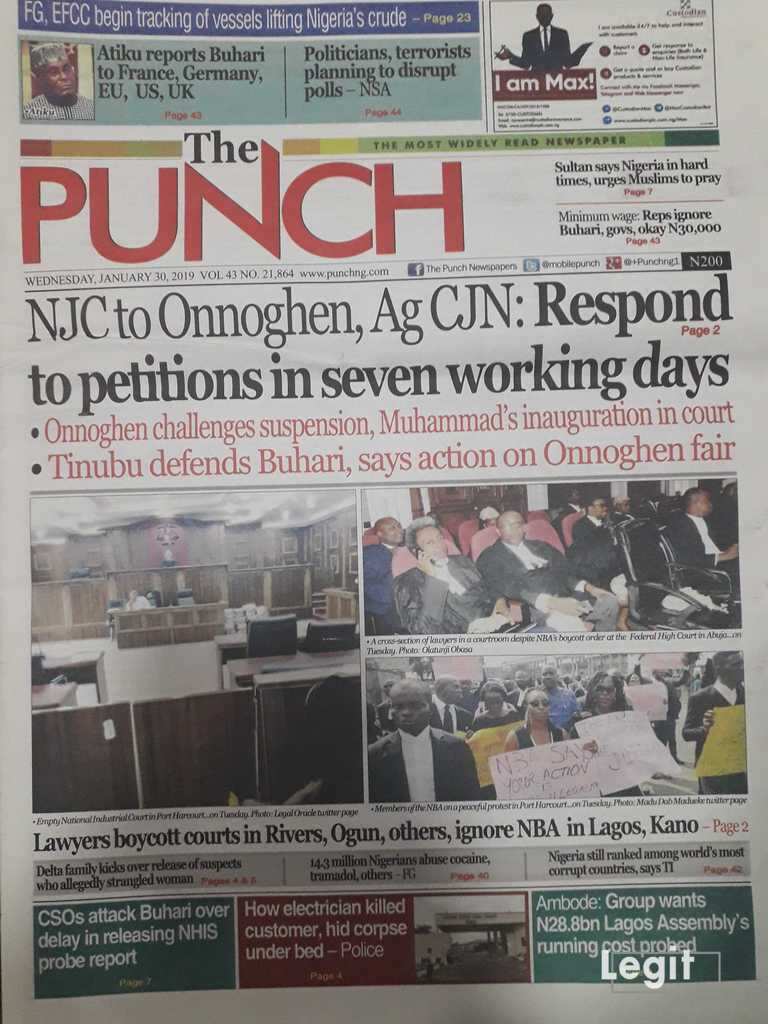
Nigerian Newspaper The Punch for Wednesday, January 30
Source: Original
Nigerian newspaper Vanguard reports that Catholic archbishop of Abuja, Most Rev John Cardinal Onaiyekan, has declared the controversies caused b the suspension of Chief Justice of Nigeria, CJN, Justice Water Onnoghen, as a distraction the nation cannot afford, ahead of the 2019 general elections.
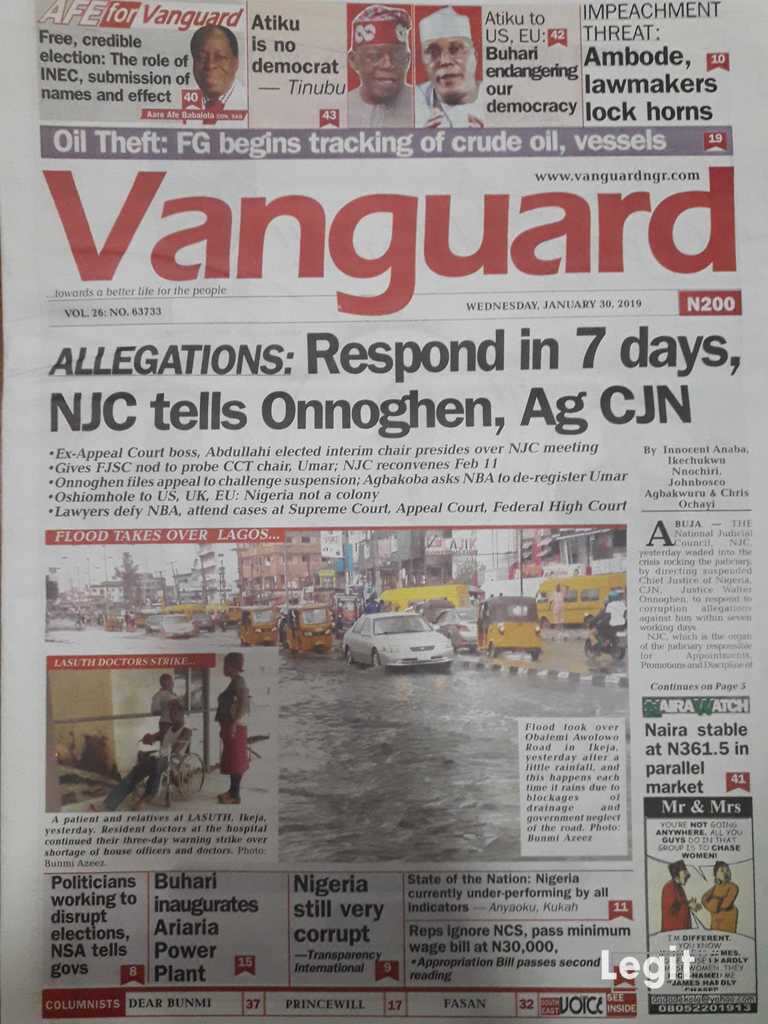
Nigerian Newspaper Vanguard for Wednesday, January 30
Source: Original
READ ALSO: NAIJ.com upgrades to Legit.ng: a letter from our Editor-in-Chief Bayo Olupohunda
Nigerian newspaper The Guardian reports that the House of Representatives has endorsed the N30,000 as national minimum wage per month to every worker in the country.
Adopting the report of the Sulaimon Yussuff Lasun-led adhoc committee that considered the draft bill proposed by the executive arm, the House turned down the proposed N27,000 recommended by the National Council of State for workers in the states and private sector as against N30,000 for federal government workers.
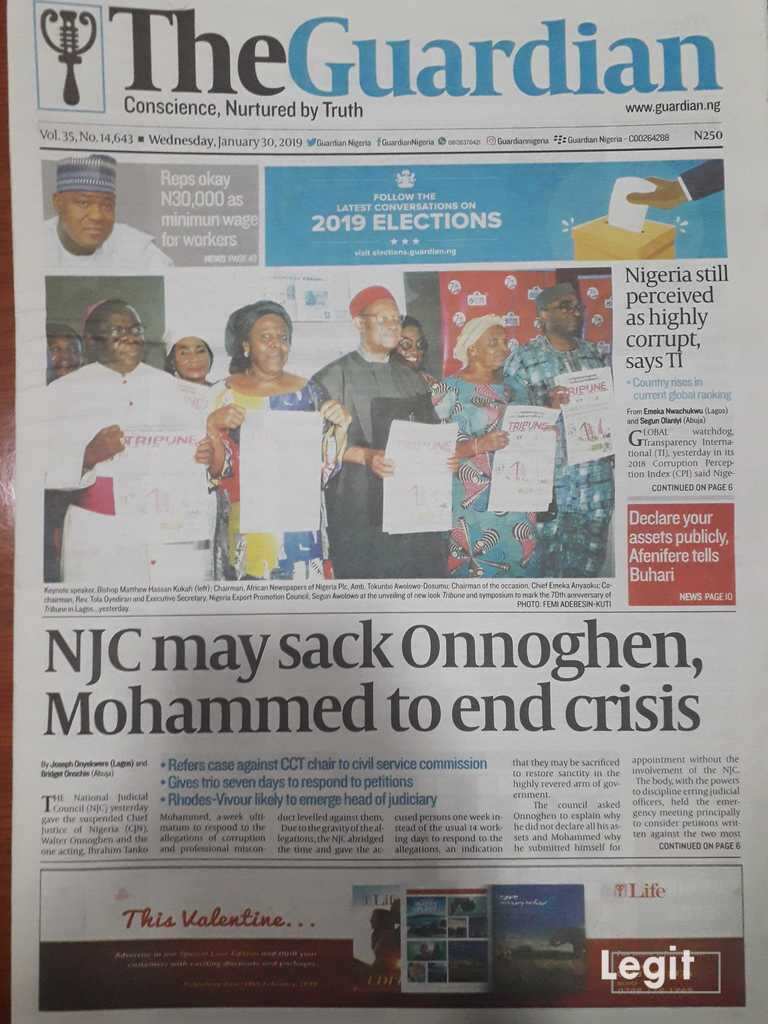
Nigerian Newspaper The Guardian for Wednesday, January 30
Source: Original
Nigerian newspaper The Nation reports that the co-chairman of the All Progressives Congress (APC) Presidential Campaign Council (APC), Asiwaju Bola Tinubu, disputed the democratic credential of former vice president Atiku Abubkar.
He berated the Waziri Adamawa for what he described as a shallow commitment to democracy, the rule of law and the anti-corruption fight, stressing that his antecedents and current position on the state of the nation lend credence to hypocritical devotion to the cause of liberty and freedom.
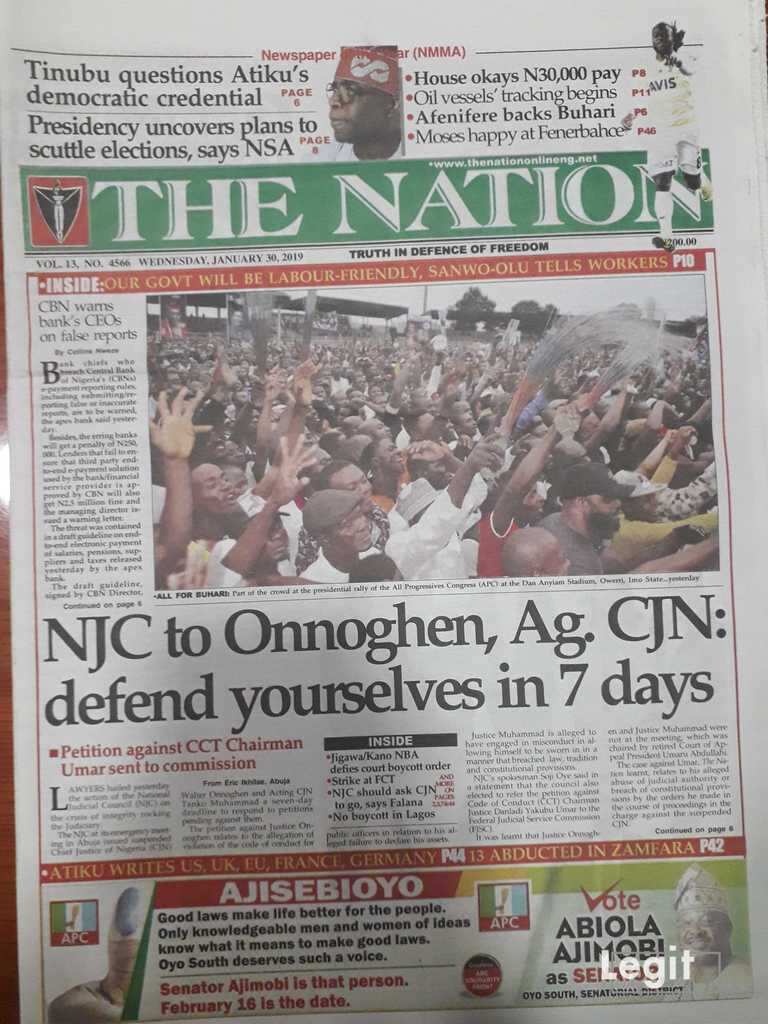
Nigerian Newspaper The Nation for Wednesday, January 30
Source: Original
NAIJ.com (naija.ng) -> Legit.ng. We have upgraded to serve you better.
NAIJ.com (naija.ng) -> Legit.ng. We have upgraded to serve you better.
A new king will emerge to restore Nigeria - Prophetess Judith| Legit TV
Source: Legit.ng
from Nigeria News today & Breaking Naija news ▷ Read on Legit.ng 24/7 http://bit.ly/2HD8ooo
via EDUPEDIA24/7
Comments
Post a Comment